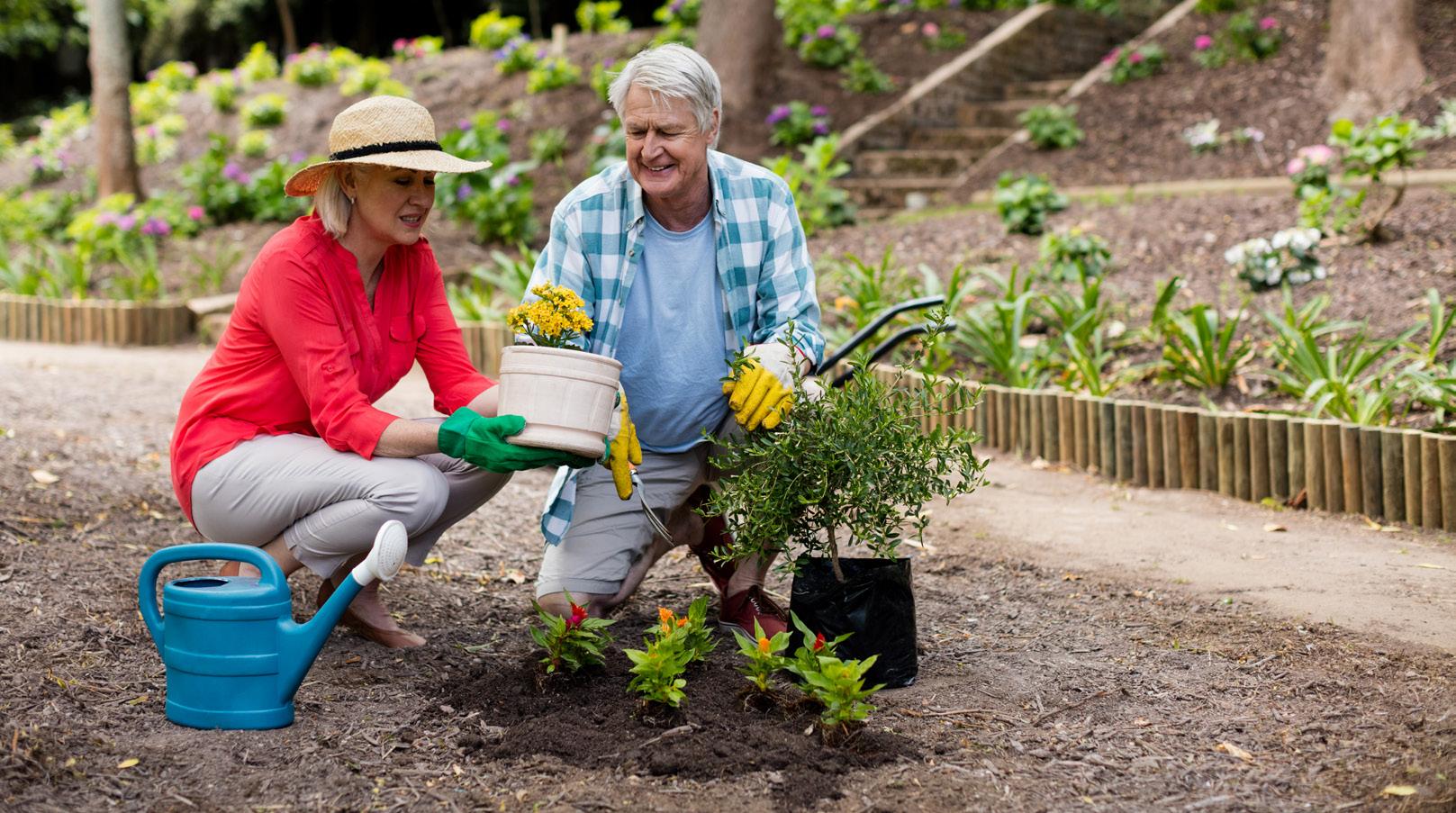
3 minute read
LET’S TALk HEALTH: GARDENING
Gardening Your Way to Mental Health: A Simple Way to Relieve Stress
The pandemic has upended life in so many ways across the U.S. So many of us feel as if we are no longer in control of our surroundings as we lose our jobs, watch our loved ones pass away, and struggle to plan for the future. Amid all this uncertainty and grief, people all over the world are turning to gardening as a way of dealing with their stress, anxiety, and depression.
Advertisement
Numerous studies have shown that exposure to green spaces, particularly gardening, is beneficial to mental and physical health. It’s an easy way to feel connected to something larger than yourself when so many of us are stuck in isolation.
It can also give you and your patients a sense of hope for the future, even as we struggle to make sense of what’s going on around us.
The Gardening Boom Gardening sales are up all over the world. Seed suppliers have had to put online orders on hold due to increased demand. U.S. seed company W. Atlee Burpee & Co. sold more seeds than at any time in its 144-year history back in March, the height of the pandemic. Some retailers are seeing ten times the number of orders they usually process this time of year.
This activity is up across the U.S. and abroad for several reasons. Food insecurity and economic uncertainty have played a substantial role. Many people are looking for ways to grow their own food instead of visiting their local supermarket. Some products have also been hard to find on the shelf as worried consumers buy in bulk or out of panic. Produce and other food shortages have resulted in a new generation of green thumbs.
LET’S TALK HEALTH
Many residents are turning to gardening as a way of getting out of the house and spending time in nature without increasing their chances of infection. For some, growing a few plants on their own property is much safer than going to the local park.
The Mental and Physical Health Benefits of Gardening However, many people are also gardening by choice, not out of necessity. Mental health professionals have been studying the effects of gardening for years.
Studies show that just looking at plants and observing nature can improve a person’s mood and reduce blood pressure, fear, anger, sadness, and even muscle tension. Communities with greater access to green spaces tend to have lower rates of anxiety, depression, and stress. Scientists say spending just two hours a week in nature can lead to better health and wellbeing.
Growing plants can also improve air quality by getting rid of dust and other toxins that may be circulating through the air. They also mitigate the effects of climate change, pulling carbon dioxide out of the air, reducing flood risk, and providing shade on a hot, sunny day.
Even Florence Nightingale used plants as part of the healing process. She found that putting plants in hospitals improved the surroundings for patients, visitors, and staff.
Tending to plants can be a great alternative to antidepressants and pharmaceuticals, many of which come with powerful side effects. Senior citizens especially tend to have trouble with this kind of medication, but they may find gardening to be just as beneficial.
Working with nature does more than just reduce anxiety. It can give you and your patients a reason to look towards the future, even as the world seems to descend into chaos. Planting a seed comes with so much potential. Watching these plants grow over the next few weeks and months can help you and your patients feel more in control of your surroundings. After losing a patient or loved one to COVID-19, gardening gives you a chance to create life. It’s a sign of hope and beauty amid this ongoing storm.
Consider taking up a new hobby or prescribing gardening to some of your patients as a way of coping with the pandemic. If you don’t have access to a garden, it’s less expensive than you might think. All you need is a little light, soil, water, seeds, and a pot.









